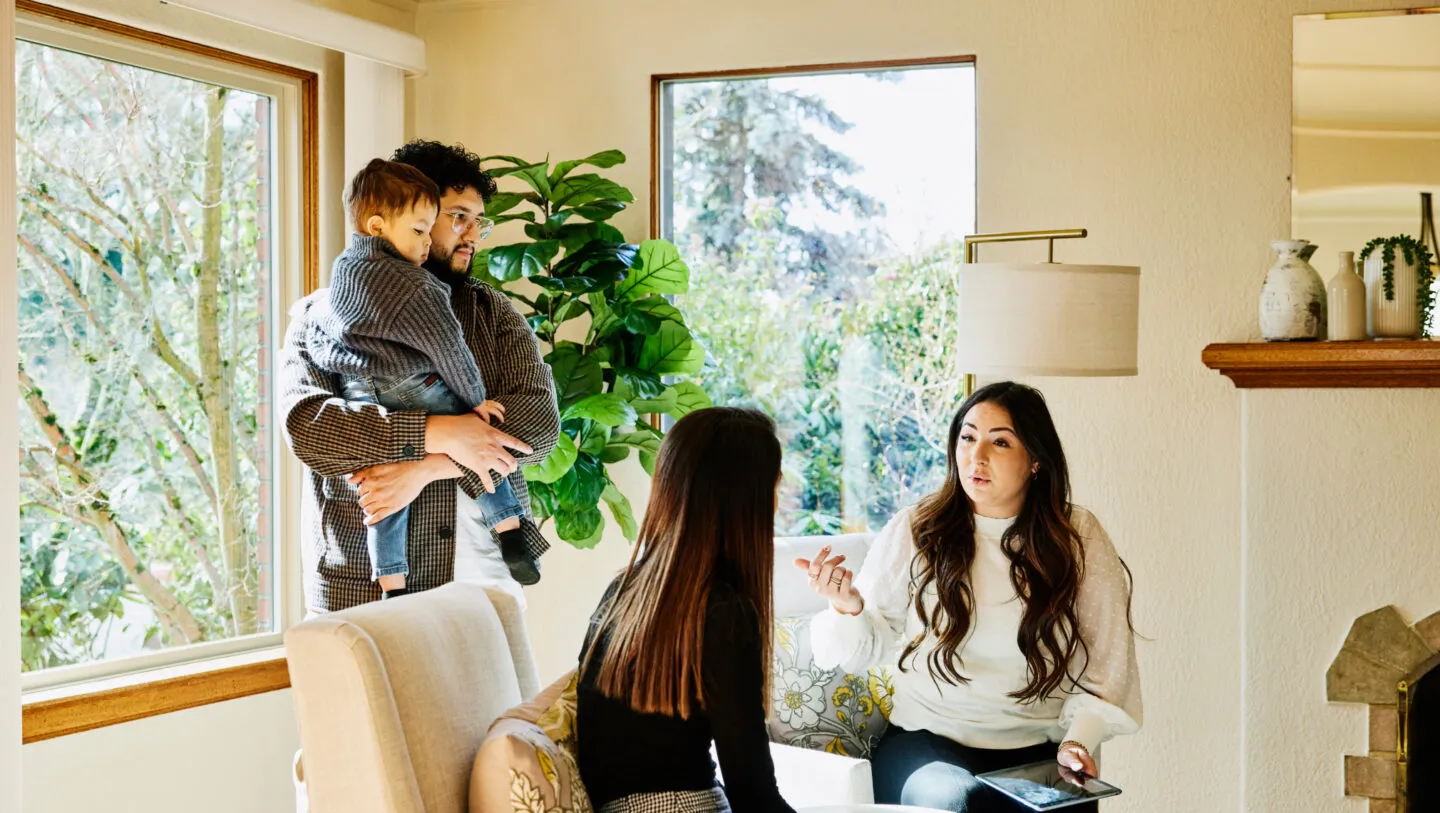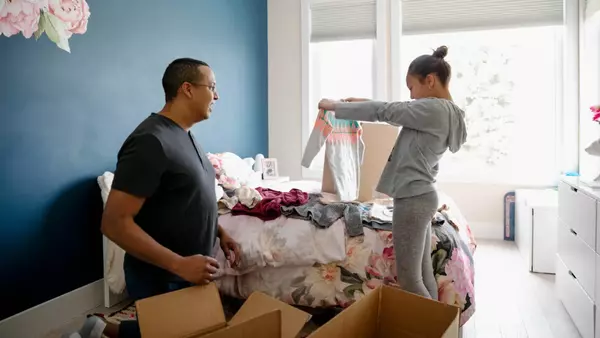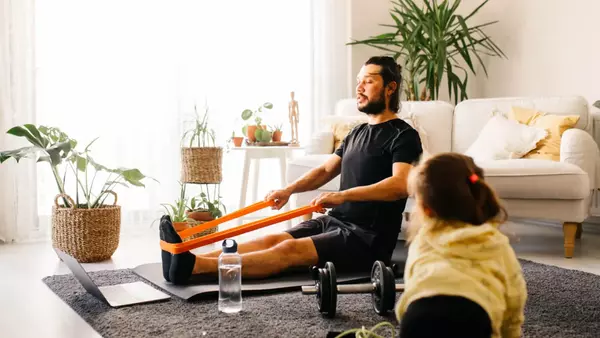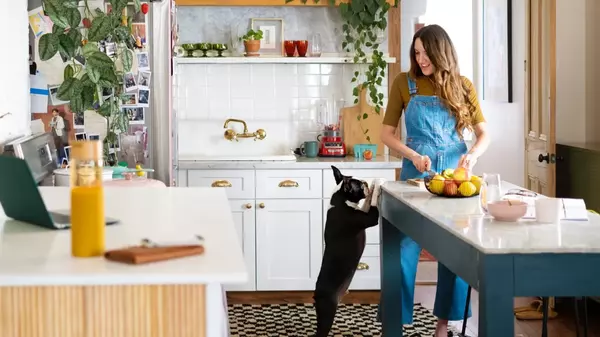What to Expect in Your First Conversation With an Agent


You're standing on the cusp of “Should I or shouldn't I?' and thinking about leaping into home ownership. Maybe you've visited neighborhoods, wandered through an open house or two and researched mortgage rates. You think you're ready to speak with an agent. Almost like contemplating a first date, you're a jangle of nerves. What are they going to ask me? Will they listen to me? How will I know if the agent is the right one?
First, keep in mind you are not alone: Last year, half (50%) of home buyers were first-timers. A great agent is well aware of your first-timer jitters and can set you at ease as they educate, inform and ultimately help you find a home that's right for you. Here's what you need to know about that first connection.
Look for the right agent
You may have been directed to an agent by a referral from a friend or family member. Or maybe you met an agent at an open house or through Zillow. Or perhaps you met an agent by requesting a home tour; if so, you may have signed Zillow’s touring agreement, which does not obligate you to work with that agent beyond the home tour (requirements vary by state; read your agreement carefully before signing).
Buy a Home A real estate agent can provide you with a clear breakdown of costs so that you can avoid surprise expenses. Finance a home Zillow Home Loans can get you pre-approved so you're ready to make an offer quickly when you find the right home. Sell a home No matter what path you take to sell your home, we can help you navigate a successful sale.
A buyer's agent represents the home buyer in a transaction, while a listing agent represents the seller. Both buyer and listing agents are licensed professionals with legal and ethical obligations to represent their client's best interests. A good local buyer's agent will understand your pain points and use their expertise to guide you through the buying process. They're skilled negotiators; are good at managing all of the moving parts of the transaction; can help you focus your search to more quickly find the right home for you; and can recommend trusted lenders, real estate attorneys, escrow officers and home inspectors. They'll communicate with you frequently in ways that work for you — face to face, phone, email, text or even video chat.
First contact — first impressions
Whether you’re connecting with a prospective agent over the phone, email or otherwise, this initial foray is a low-pressure, get-know-you intro that's a smidge more than casual. You want to let the agent know why you're looking to move, the name of a neighborhood or two you might want to explore and how much you think you want to spend. Share any time constraints — you're moving for a new job that starts in three months, you want to be in a new home before your baby is born, you need to move before the beginning of the school year, etc.
Remember that good relationships work for all involved parties. In this initial meeting, you'll be figuring out if you feel comfortable with the agent. At the same time, they're figuring out if they will be the best agent for you.
As you talk with each agent, ask yourself: Is the agent listening to me? Do they have local neighborhood knowledge? Will they make the buying process easy to understand? Do I feel comfortable talking about my finances with them? If you can answer these questions confidently, you likely have a good fit and may want to set up another conversation.
Quell your worries about money and preparedness
You might be jittery about sharing your finances with someone you’ve just met. It’s an understandable concern, but your agent is primarily focused on helping you move, which means they’ll need to know what kind of budget you’re expecting to work with.
While your agent can help you navigate affordability, it’s a good idea to gather the most information possible early on. You might consider talking to a loan officer at the outset of your home search to get a sense of your budget, and even to get pre-approved. Some agents will require a pre-approval or pre-qualification letter before you start touring homes, and that’s in your best interest. That way, you can quickly put in an offer if you find the house you want — and you’ll be crystal clear on how much house you can realistically afford.
What if you're just browsing? That’s also okay — an agent won’t expect you to have everything figured out. A great one will help you figure out what type of house in which neighborhood will best meet your lifestyle and financial goals. If you want suburban living, they won't waste your time with city townhouse listings. Let the agent know as much as possible about what you like about homes you may have seen, e.g., a large kitchen, three bedrooms, a dog wash station, a finished basement with an in-law suite, etc.
Moving forward
Once you feel comfortable moving forward with the agent, you will formally sign a buyer’s agency agreement, which will outline the expectations of your working relationship. Know that you can always negotiate with your agent on the terms of the agreement. Once hired, your agent will set up in-person or video home tours depending on what works best for your timetable. You'll get into deeper conversations and begin to narrow down your needs vs. desires. (Here's a handy checklist for keeping track of your needs and desires.) And that’s only a slice of the benefits your agent will provide throughout your home-buying journey.
A great agent is going to be responsive to your cues. Find the right partner and take the leap.
Recent Posts

Discover Luxurious Living in Hoschton: A Closer Look at 173 Tennessee Walker WAY

A Complete Guide to A Home Equity Line of Credit (HELOC)

Government Home Loans: Make Homeownership Possible

10 Tips for Organizing Your Whole House

What To Know About Smart Home Tech

8 Value-Adding Home Improvements You Can Do for $1,000 or Less

Health and Wellness Upgrades That Make Your Home Better

How to Find an Apartment: 11 Ways to Beat the Hot Rental Market

5 Things to Look for in a Rental Listing

6 Tips for Finding a Pet-Friendly Rental
